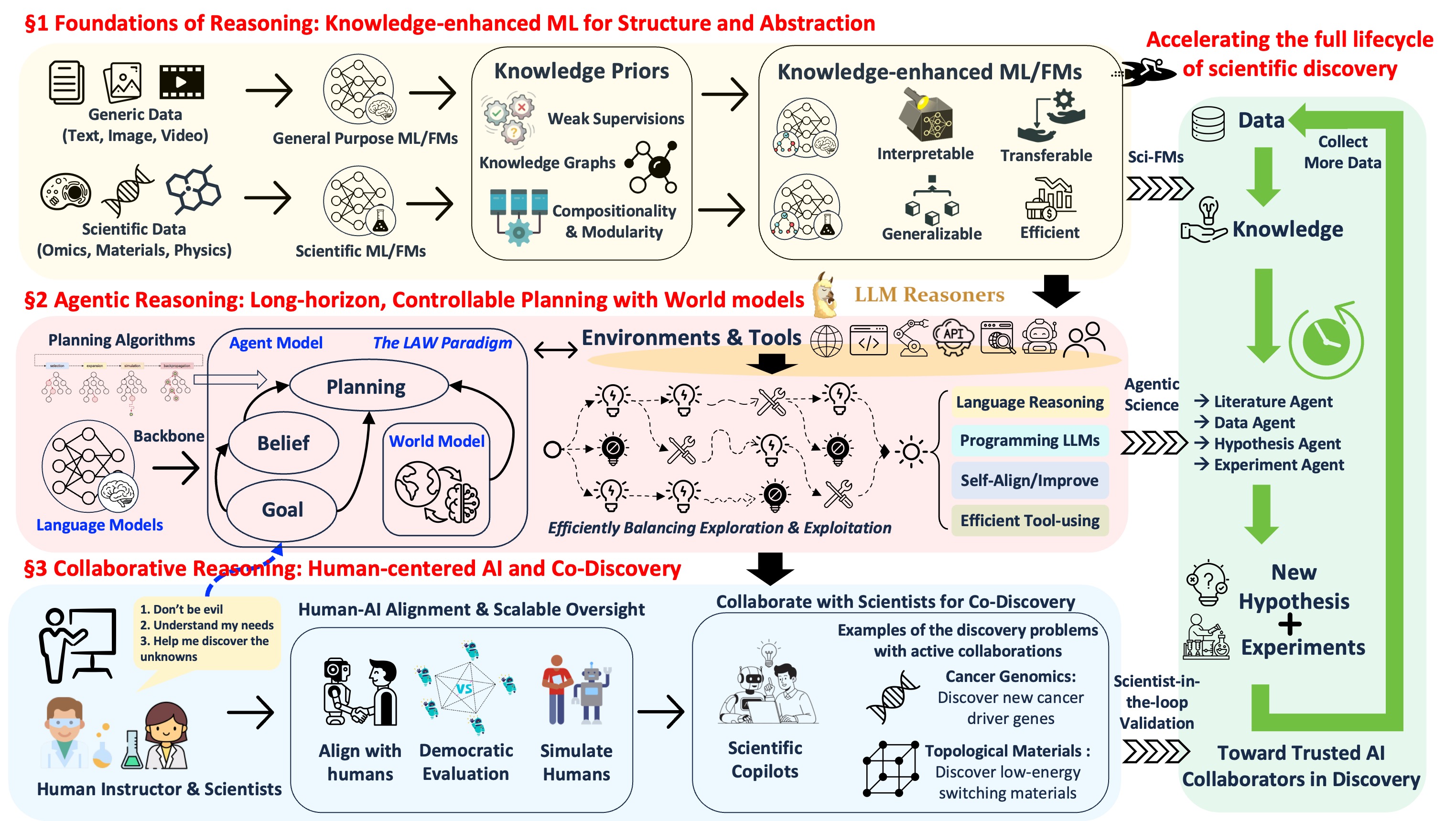Research Overview
Building Scientist AI — Systems that Reason to Discover
My research sits at the emerging intersection of advanced AI reasoning and accelerated discovery across science and society. This space extends traditional data-driven discovery, calling for AI systems that actively explore hypotheses, simulate possibilities, and generate new, verifiable knowledge across disciplines.
I approach this field by identifying new foundational problems with rigorous, reproducible benchmarks and evaluation protocols (scBench, FIRE-Bench, LLM Reasoners), and by building systems that reason, simulate, and interact directly with complex data, code, tools, literature, and human collaborators. I validate these systems end-to-end across biology, materials science, machine learning research, and human-centered domains, with novel discovery results including new cancer driver genes, new materials, and new scientific insights.

My research agenda comprises three tightly connected pillars:
Research Keywords & Technical Expertise
My technical expertise spans the following interconnected areas: